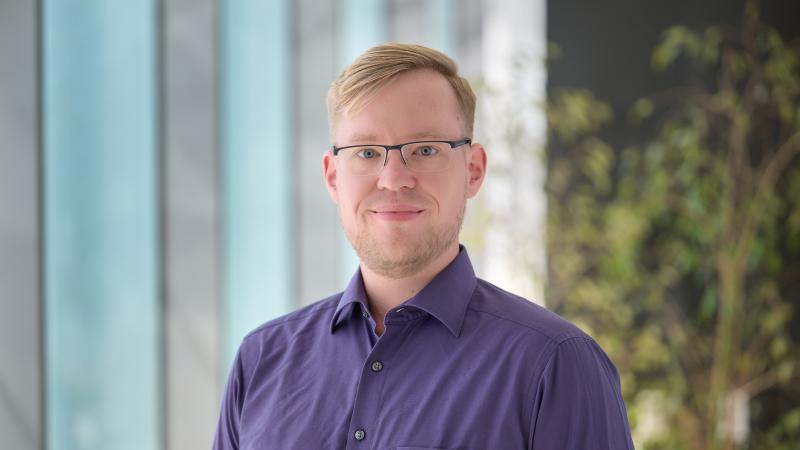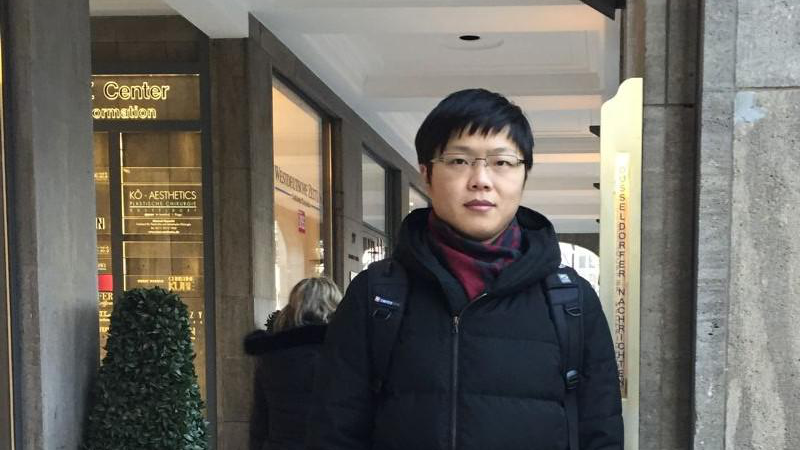Our primary objective is the investigation and development of efficient algorithms for the accurate simulation of natural phenomena, processes, and technical procedures to solve relevant problems in scientific and visual computing.
Dominik L. Michels is an Associate Professor of Computer Science and Applied Mathematics, and the Principal Investigator of the Computational Sciences Group at KAUST's Visual Computing Center. Professor Michels and his team develop efficient methods for the accurate simulation of natural phenomena, processes, and technical procedures to solve practically relevant problems in scientific and visual computing. In this context, his academic interests comprise algorithms, artificial intelligence, machine learning, mathematical modeling, numerical simulations, scientific and visual computing.
Education and early career
Since summer 2016, he is heading the Computational Sciences Group within KAUST's Visual Computer Center. Previously, he joined Stanford University in fall 2014 heading the High Fidelity Algorithmics Group within the Max Planck Center for Visual Computing and Communication. Prior to this, he did postdoctoral studies in Computing and Mathematical Sciences at Caltech in spring and summer 2014. He studied Computer Science and Physics at University of Bonn and B-IT, from where he received a B.Sc. in Computer Science and Physics in 2011, a M.Sc. in Computer Science in 2013, and a Ph.D. in Mathematics and Natural Sciences on Stiff Cauchy Problems in Scientific Computing in early 2014. During his academic studies he was visiting several international institutions, among others Harvard University, the Massachusetts Institute of Technology, NASA's Jet Propulsion Laboratory, and the Joint Institute for Nuclear Research in Dubna, Moscow.
Areas of expertise and current scientific interests
The overarching goal of Professor Michels' research is enabling accurate and efficient simulations for scientific and visual computing. Towards this goal, he develops new principled computational methods based on solid theoretical foundations, and contributes to a broad range of topics covering algorithmics, artificial intelligence and machine learning, computer graphics and physics-based modeling, differential equations, mathematical modeling, and numerical analysis.
Career recognitions
His studies and research were awarded and supported with various honors, for example with an Artificial Intelligence Grant of the German State of North Rhine-Westphalia as part of its Academic Expat Program endowed with 1.25 million euros, by the German Academic Scholarship Foundation, with a Johannes Kepler Foundation Scholarship awarded for excellent achievements in algorithmic and geometry, by the ACM SIGSAM for achievements in computer algebra, and with the academic award of the AFCEA.
Professional activities
Professor Michels is actively engaged in the ACM SIGGRAPH community, among others, serving on the technical paper committees of SIGGRAPH 2022, and SIGGRAPH Asia 2020 and 2021. In the non-academic context, he serves as a research partner partnering with and advising leading multinational companies and research institutions from various sectors, specifically from the high-technology and consumer goods sections. In this context, he received the first Procter & Gamble Faculty Award for his research contributions to the consumer goods industry. He is a member of the ACM and the IEEE, the London Mathematical Society, and the AGYA project at the Berlin-Brandenburg Academy of Sciences and Humanities.
Why computer science?
Digitization is one of the major origins of the most significant economic and social developments of our times. A proper computer science education provides a solid basis in order to become capable of understanding the underlying technology, its innovation potential, opportunities and risks, and being able to reflect on it in order to contribute substantially to the world today, shaping its future, and proactively design strategies to face upcoming challenges.
Why KAUST?
KAUST is one of just a very few universities that have the potential to create tremendous global impact in science and society. It initiates educational, economic and social change in the region, and from a purely scientific perspective, addresses current global challenges, including energy and environmental issues.
Education Profile
- Postdoc, Computing and Mathematical Sciences, California Institute of Technology, 2014
- Ph.D., Mathematics and Natural Sciences, University of Bonn, 2014
- M.Sc., Computer Science, University of Bonn, 2013
- B.Sc., Computer Science and Physics, University of Bonn, 2011
Awards and Distinctions
- ACM SIGSAM Award
- AFCEA Academic Award
- Distinguished Dissertation, University of Bonn (German Informatics Society Colloquium)
- Elected Member of AGYA, Berlin-Brandenburg Academy of Sciences and Humanities
- KAUST Competitive Research Grant (Principal Investigator, USD 1.05M)
- NRW Artificial Intelligence Grant (EUR 1.25M)
- Procter & Gamble Faculty Award
- Scholar, Bonn University Foundation
- Scholar, German National Merit Foundation
- Scholar / Participant, Heidelberg Laureate Forum
- Scholar, Johannes Kepler Foundation
- Scholar, Max Planck Society for the Advancement of Science
- Scholar, State of North Rhine-Westphalia

